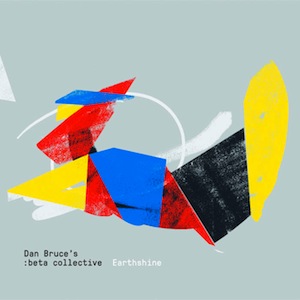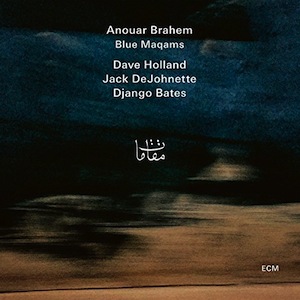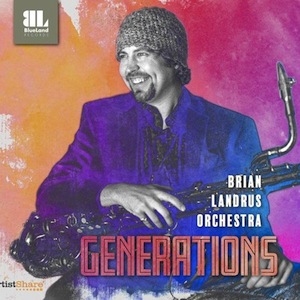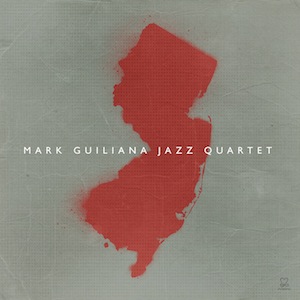Label/Year: Self produced, 2017
Lineup - Rudresh Mahanthappa: alto saxophone, electronics; Rez Abbasi: guitar; Dan Weiss: drums, tabla.
Fiery New York-based saxophonist/composer of Indian descent, Rudresh Mahanthappa, has risen to the jazz stardom by cultivating an impressive, unique sound that hallucinates and transfixes.
Besides the successful early partnership with pianist Vijay Iyer (Black Water; Mother Tongue; Codebook), a memorable collaboration with saxophonist Steve Lehman (Dual Identity), and an explorative original work with Charlie Parker's music as the central focus (Bird Calls), Mahanthappa formed the Indo-Pak Coalition, project with Pakistani-born guitarist Rez Abbasi and drummer Dan Weiss, an expert in Indian percussion.
Agrima, his freshest work, features this groundbreaking trio successfully resurfacing Eastern roots and traditions in order to fuse them with the most desirable improvised jazz. This is their sophomore album and a comfortable improvement regarding the debut CD Apti.
The airy, country-like atmosphere of “Alap”, the opening track, surprises due to an indolent predisposition that is not so habitual in Mahanthappa’s compositions. Restraining impetuousness in favor of a more cerebral approach, the saxophonist exhibits a distinguishable coordination with Abbasi on “Snap”, where they follow the steps of each other whether by echoing the theme’s melodic statement or engaging in ephemeral unisons. Abbasi’s textures fascinate, covered in distortion and often enriched with rock-ish riffs on the bottom register. As the guitar solo begins, Weiss switches the tabla for the drum kit, building a more robust foundation with the help of saxophone drones, which compensate the absence of harmony. Close to the finale, a cyclic harmonic progression runs on top of an animated rock pulse.
Predominantly folk, the westerner “Showcase” displays bluesy melodic phrases over a restricted harmonic movement. The band explores alternative sonorities as the time passes, opening up a space for Weiss’ polyrhythmic explorations.
“Agrima”, the title track, lives from electronic stimulus to incur on an indie folk rock whose syncopated rhythm variates more than once. Again, Abbasi romps off on an abrasive improvisation that reveals all his forthrightness and confidence.
There’s plenty of bite in the bandleader’s horn on the elastic “Rasikapriya”. An early entrancing tabla soon gives its place to a brawny rock drumming after a rare abstract middle passage.
The 14-minute “Revati” departs from Abbasi’s spatial intro, which resorts to harmonics, low-pitched notes, and synth-like surroundings, to guide us toward pop/rock harmonic zones using folk jazz dialects as vehicles.
Mahanthappa closes the record with the edgy “Take-Turns”, where the splendid timbres, vertiginous language, and irreverence that made him a stalwart in the bolder side of the jazz spectrum mingles with nifty guitar chops and occasional, never-obfuscatory electronic sounds.
There’s never a dull moment in this world fusion celebration.
Grade A-
Favorite Tracks:
02 - Snap ► 06 - Rasikapriya ► 08 - Take-Turns








































